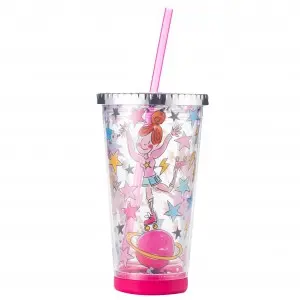In today’s world where sustainability is a top concern, recycling has become a key aspect in reducing waste and conserving resources. Baby bottles are one of the most commonly used items for babies, often raising questions about their recyclability. In this blog, we take a deep dive into the world of recycling and explore whether baby bottles can indeed be recycled.
Learn about baby bottles
Baby bottles are usually made from a variety of materials, including high-quality plastics like polypropylene, silicone, and glass. These materials were chosen for their durability, safety and ease of use. However, it’s worth noting that not all baby bottles are created equal when it comes to recyclability.
Recyclability of different baby bottle materials
1. Plastic baby bottles: Most plastic baby bottles on the market today are made of polypropylene, a type of recycled plastic. However, not all recycling facilities accept this type of plastic, so local recycling guidelines must be checked. If your facility accepts polypropylene, be sure to rinse and remove any potentially non-recyclable bottle parts such as nipples, rings or caps.
2. Glass baby bottles: Glass baby bottles are making a comeback in popularity due to their eco-friendliness and ability to be reusable. Glass is a highly recyclable material and most recycling facilities accept glass bottles. Just make sure they are rinsed thoroughly and do not contain any silicone or plastic attachments that could reduce their recyclability.
3. Silicone baby bottles: Silicone is a versatile material known for its durability and resistance to high temperatures. Unfortunately, most recycling facilities do not accept silica gel for recycling. However, there are silicone recycling programs that specifically recycle products made from this material. Find a dedicated program or consult the manufacturer of silicone baby bottles to explore recycling options.
The importance of proper disposal
While recycling baby bottles is an environmentally friendly option, it’s important to remember that disposal methods also play an important role in sustainability efforts. Here are some suggestions for ensuring proper disposal of baby bottles:
1. Reuse: One of the best ways to reduce waste is to reuse baby bottles. If the bottles are in good condition, consider passing them on to friends, family, or donating to a local organization.
2. Donate: Many childcare organizations or parents in need appreciate receiving used baby bottles. By donating them, you contribute to the circular economy while providing a valuable resource to others.
3. SAFETY FIRST: If the baby bottle is damaged or no longer usable, please prioritize safety. Take the bottle apart to separate its parts before disposing of it properly. Please consult your local waste management agency for specific guidelines.
In conclusion, the recyclability of a baby bottle depends on its material, with plastic and glass being the most widely recyclable options. Appropriate disposal methods, such as reuse or donation, can further enhance their sustainable attributes. Remember to check your local recycling guides and explore dedicated recycling programs to ensure these everyday objects get new life. By making smart decisions about baby bottle disposal, we can create a greener, more efficient future for generations to come.
Post time: Jul-15-2023
